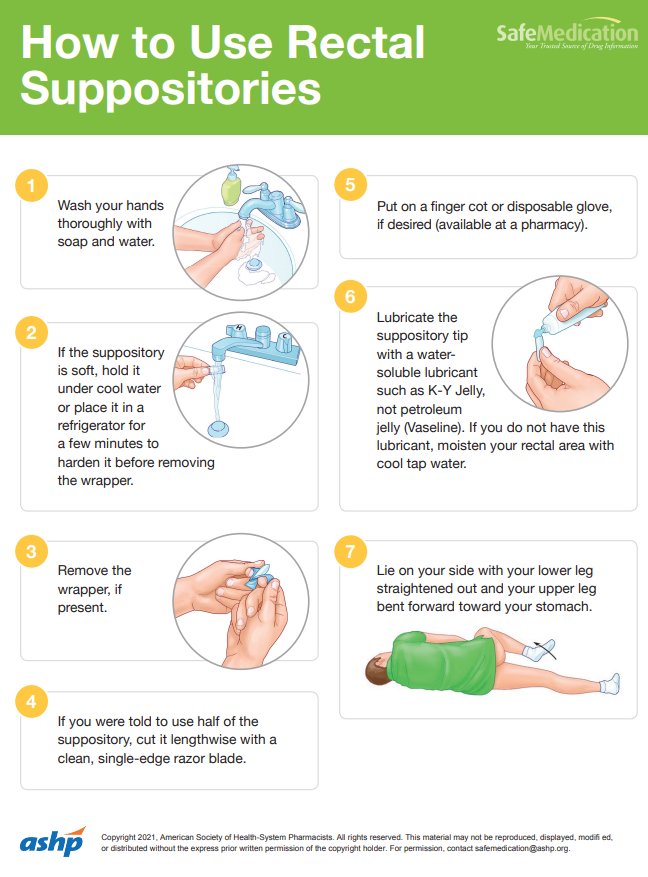A suppository is a way to give medicines. It is small, usually cone-shaped and is put into your bottom. Once it’s inside, it melts or dissolves and releases the medicine.
Suppositories are made using substances such as cocoa butter or vegetable oil to carry the medicine. As the warmth of your body melts the suppository, the medicine slowly releases into your body.
Love our website? We do too. Did you know we're a charity? Donate now to help us keep it free for everyone in Aotearoa New Zealand.
How to use suppositories
Key points about suppositories
- Suppositories are used to get medicine into your body. They are inserted into your bottom (rectum).
- It is small, usually cone-shaped and is put into your bottom.
- Suppositories are made using substances like cocoa butter or vegetable oil to carry the medicine.

Suppositories are used for treating conditions related to the bowel, for example ulcerative colitis in the rectum (eg, mesalazine suppositories), constipation (glycerol or bisacodyl suppositories) or haemorrhoids (eg, Anusol suppositories).
Suppositories are also used for pain relief and other conditions when taking tablets or capsules isn't suitable. This may be because:
- you have severe nausea (feeling sick) or vomiting (being sick) and can’t keep tablets or capsules down
- you are having problems swallowing
- you can't eat or drink.
Always follow the instructions on the packaging of your medicine. The following is a guide.
- Wash your hands.
- Remove the suppository from its wrapping.
- Lie on your side and raise your knees to your chest.
- Using your finger, gently push the suppository into your rectum (bottom).
- Remain lying down for a few minutes so that the suppository melts.
- Wash your hands.
Unless the suppository is a laxative, used for constipation, try not to go to the toilet for at least 1 hour after use.
Here are some things to know when you're using suppositories. Other things may be important as well, so ask your healthcare provider what you should know about.
- If the suppository is too soft to use, place the wrapped suppository in cold water or in the fridge for a while to make it firm enough to insert.
- Some suppositories need to be stored in the fridge. If so, take it out of the fridge for a little while before use so it doesn’t feel too cold.
- If you only need half of the suppository, cut it carefully lengthwise and keep the remaining half for the next dose.
- You may feel the urge to force out the suppository. The urge should stop once the suppository melts, which should only take a few minutes.
- Sometimes the suppository may leak a bit. Wear protective clothing and/or use absorbent pads in your underwear just in case.
Brochures
How to use rectal suppositories(external link) American Society of Health-System Pharmacists, US
How to give your child suppositories(external link) NHS, UK
5 questions to ask about your medications(external link) Health Quality and Safety Commission, NZ, 2019 English(external link), te reo Māori(external link)
References
- How to use rectal suppositories(external link) Safe Medication, US, 2021
Brochures

American Society of Health-System Pharmacists, US, 2021

Medicines and side effects
Healthify He Puna Waiora, NZ, 2024

Health Quality and Safety Commission, NZ, 2019 English, te reo Māori
Credits: Sandra Ponen, Pharmacist, Healthify He Puna Waiora. Healthify is brought to you by Health Navigator Charitable Trust.
Reviewed by: Angela Lambie, Pharmacist, Auckland
Last reviewed:
Page last updated:





